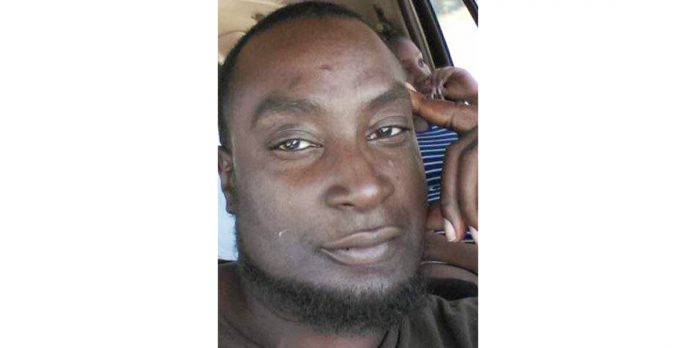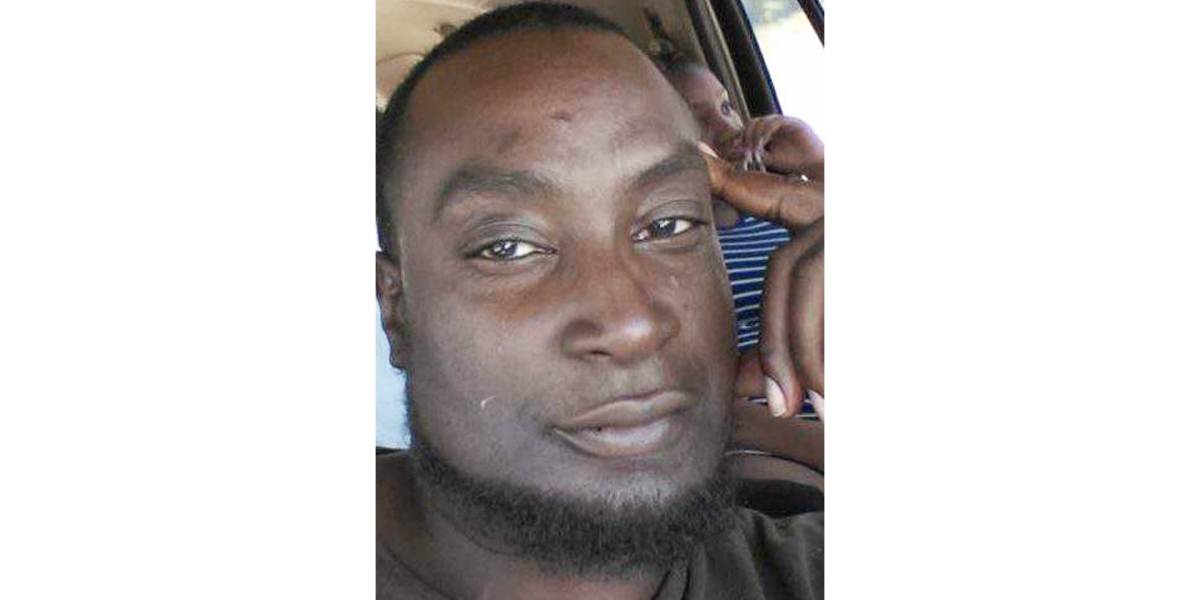
CHARLOTTE – The morning after violent protests erupted over the fatal police shooting of a black man, officials here called for peace while stressing that the man was armed and posing an “imminent deadly threat” when officers shot and killed him Tuesday near the University of North Carolina at Charlotte campus.
Sixteen police officers and numerous protesters were injured as the two sides clashed overnight, hours after Keith Lamont Scott was fatally shot by an officer from the Charlotte-Mecklenburg Police Department.
Scott’s family insisted he was not armed when he was killed outside an apartment complex, instead saying he was reading a book in his car at the time of the fatal encounter – a detail seized by protesters in Charlotte and on social media.
On Wednesday, at a midmorning news conference, Charlotte-Mecklenberg Police Chief Kerr Putney said the officers were searching the previous afternoon for a suspect who had outstanding warrants when they spotted Scott – who was not the suspect they were seeking – emerge from a vehicle armed with a handgun.
“The officers gave loud, clear verbal commands,” instructing Scott to drop the weapon, the chief said. “In spite of verbal commands, Mr. Scott exited his vehicle armed with a handgun as the officers continued to yell at him to drop it. He stepped out, posing a threat to the officers” – at which point, Putney said, an officer fired his service weapon, striking 43-year-old Scott, who was pronounced dead at a nearby hospital.
“It’s time to change the narrative, because I can tell you from the facts that the story is a little bit different as to how it’s been portrayed so far, especially through social media,” Putney said. “So Charlotte, the challenge is ours.”
Following the shooting, a large crowd of protesters gathered near the university campus. The demonstrations began peacefully, with some people chanting “black lives matter” and “hands up, don’t shoot.” News reports and posts on social media later showed police in riot gear firing tear gas and rubber bullets at the protesters and some people smashing out the windows of police cars.
Activists said the violent overnight demonstrations stemmed from lingering frustrations over previous police shootings in the city – including a deadly encounter in 2013, when Jonathan Ferrell, an unarmed black man, was shot and killed by a white police officer.
Hours after Scott’s death, demonstrators shut down traffic on Interstate 85; some opened up the backs of tractor trailers, took out boxes and set them on fire in the middle of the highway, WSOC reported. The station spoke to one truck driver who said people stole cargo from her trailer. Police reportedly used flash grenades to break up the crowd and cleared the highway by early Wednesday morning.
A few dozen others broke down the doors of a nearby Walmart, then dispersed when the authorities arrived, according to the news station.
The police chief told reporters that 16 officers were injured during the demonstrations, one of them hit in the face with a rock; the extent of the officers’ injuries varied, Putney said Wednesday. At least 11 people were taken from the demonstrations and treated for life-threatening injuries, hospital officials the news station.
Attorney General Loretta Lynch called on protesters to remain peaceful, criticizing the violence that injured law enforcement officers and demonstrators alike.
“Protest is protected by our Constitution and is a vital instrument for raising issues and creating change,” she said during remarks at a conference Wednesday morning in Washington. “But when it turns violent, it undermines the very justice that it seeks to achieve and I urge those demonstrating in Charlotte to remain peaceful in their expressions of protest and concern.”
In a statement, North Carolina Gov. Pat McCrory (R) said Wednesday that his office “will do everything we can to support the mayor and the police chief in their efforts to keep the community calm and to get this situation resolved. It’s very important that we all work together as a team to solve a very difficult issue and to bring peace and resolution.”
He added: “My prayers are with the Scott family and also our law enforcement, especially the 16 police officers who were injured last night. As governor I’m going to do everything I can to support the entire city leadership in their effort to resolve this situation.”
Putney, the police chief, said officers were searching for a suspect Tuesday afternoon at the Village at College Downs apartment complex.
Police said Scott had been sitting in a parked car at the apartment complex and then exited the vehicle holding a firearm. As officers approached, Scott again emerged from the car with the firearm and “posed an imminent deadly threat to the officers who subsequently fired their weapon striking the subject,” police said.
Scott was transported to the Carolinas Medical Center, where he was pronounced dead.
Detectives said they recovered a firearm Scott was holding during the fatal encounter and were interviewing witnesses Tuesday night. Police declined to comment on the make and model of the firearm.
Putney said he was uncertain whether Scott’s weapon was loaded, or whether he had pointed it directly at the officers. He also said investigators did not find the book referenced by Scott’s family.
Authorities identified the officer who shot and killed Scott as Brentley Vinson, who has worked for the Charlotte-Mecklenburg police force since July 2014. He has been placed on paid administrative leave pending an investigation, which is standard procedure in officer-involved shootings. Vinson is also black, authorities told The Washington Post.
Putney said the officer was in plainclothes, wearing a vest with a police logo, but was accompanied by other officers in full uniform.
The police chief also said that the officer was not wearing a body camera but that other officers on the scene were; Wednesday morning, he said he had not yet watched the footage in its entirety.
A woman who identified herself as Scott’s daughter said her father was unarmed and reading a book in his car when police shot and killed him.
In a widely circulated Facebook Live video, she said Scott was parked and waiting for a school bus to drop off his son when police arrived. Officers used a stun gun on him, then shot him four times with their service weapons, she said.
She added that Scott was disabled.
“My daddy didn’t do nothing; they just pulled up undercover,” she said in the video.
A police spokeswoman declined to comment on the video.
Charlotte Mayor Jennifer Roberts said the city will conduct a “full investigation” into the shooting and promised transparency. She told reporters Wednesday that authorities would release information as soon as allowed to “dispel” inaccurate accounts circulating widely on social media and elsewhere.
Scott is one of at least 702 people who have been fatally shot by police so far this year, 163 of them black men, according to a Washington Post database tracking fatal officer-involved shootings.
This city was the scene of another high-profile police shooting in September 2013, when Charlotte-Mecklenburg officers fatally shot Jonathan Ferrell, a 24-year-old black man who had crashed his car in a residential neighborhood several miles from the complex where Scott was killed.
Officer Randall Kerrick fired 12 rounds at Ferrell, who was unarmed, striking him 10 times. Police said Ferrell ignored officers’ instructions.
Last year, the jury deadlocked during Kerrick’s trial. While most jurors voted to acquit the officer, four had voted to convict him, and after a judge declared a retrial the state said it would not seek another trial. Ferrell’s family and the city of Charlotte settled a lawsuit stemming from the shooting for a reported $2.25 million.
Jibril Hough, a local activist who organized protests during Kerrick’s trial, said the Ferrell shooting was not as “explosive” as this week’s fatal encounter, but that it “weathered on us.”
“What happens is that nine times out of 10, the cop will get off. He’ll get paid leave. He’ll get early retirement. He’ll basically get paid for the killing,” he said. “Nothing is being done to really change anything.”
“What you’re seeing is people have been put in that situation for so long and they’re tired of talking,” he added. “They’re tired of talking and talking and candlelight vigils and dialogue and nothing getting done.”
In 2015, a 20-year-old black woman Janisha Fonville was shot and killed by Charlotte-Mecklenburg police as officers responded to a domestic dispute.
Police later said Fonville was holding a 6- to 8-inch knife and lunged toward them, prompting an officer to open fire, striking Fonville. Fonville’s girlfriend said the woman was unarmed.
Charlotte councilwoman LaWana Mayfield (D) said the mood in the city this week is one of “sadness, pain and loss.”
“We know as a community and a society know where this anger is coming from,” she said. “You have more than several individuals, specifically Latinos and African Americans, who have had interactions with police that have resulted in loss of life.”
Mayfield said that the protests in Charlotte have been fueled in part by long-simmering frustrations from previous police shootings – Ferrell in 2013 and Fonville last year. Scott’s death, she said, added accelerant to an emotionally charged fire.
“This is the pain of the nation – not just African-Americans but pain of the entire nation to see the injustice before them,” Mayfield said.
Scott’s death came just one day after police in Tulsa released video of an officer shooting and killing an unarmed black man who had gotten out of a stalled SUV.
Terrence Crutcher, 40, was standing on the side of the road by the broken down vehicle on Friday evening when officers arrived and ordered him to show his hands. Police said they Tasered and shot Crutcher after he refused to obey officers’ commands and reached into the driver’s side window of the SUV.
But video released Monday showed Crutcher walking with his hands in the air, and an attorney for the man’s family said the vehicle’s window was rolled up when an officer opened fire on him. Police said they found PCP in the vehicle but no weapon.
Lynch, the attorney general, said the recent shootings in Charlotte and Tulsa again laid bare friction between law enforcement officials and the regions they police.
“These tragic incidents have once again left Americans with feelings of sorrow, anger and uncertainty,” Lynch said. “They have once again highlighted – in the most vivid and painful terms – the real divisions that still persist in this nation between law enforcement and communities of color.”
Lynch spoke two days after the Justice Department began a civil rights probe into the Tulsa shooting, and she said that federal officials were in touch with local authorities beginning their investigation into Scott’s death in Charlotte.
(c) 2016, The Washington Post · Derek Hawkins, Cleve R. Wootson Jr., Lindsey Bever


